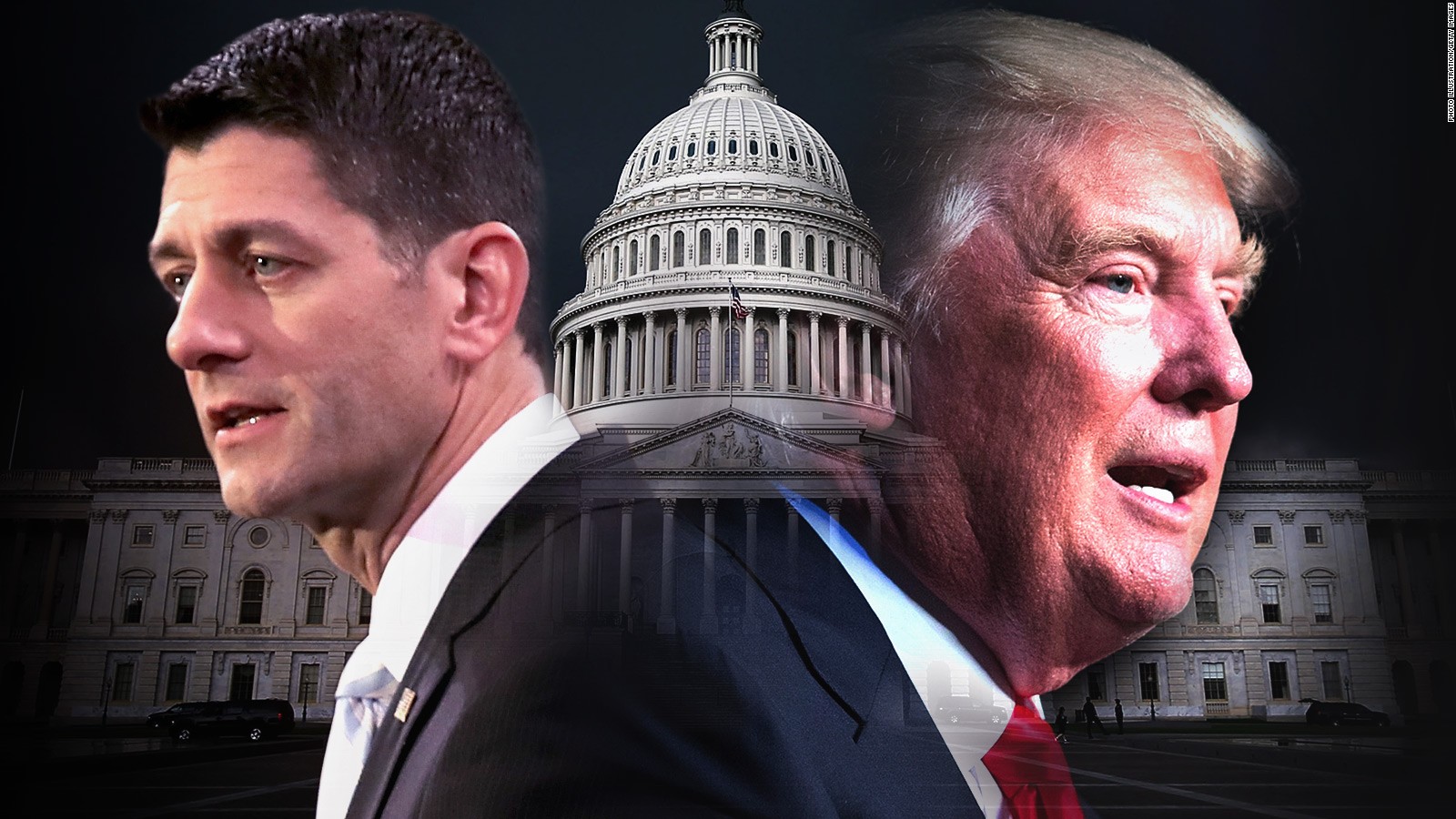 One of President Elect Donald Trump’s main selling points of
his presidential campaign was his nationalist points of view and xenophobic
sentiments, promising to build a wall on the Southern border between the United
States and Mexico as well as to deport millions of undocumented immigrants
currently living in the U.S. Putting aside the challenging physical logistics
of such policies (the manpower and resources it would take to mobilize millions
of people who have developed lives, jobs, families, etc. here in the US and to
build a wall on the scale that Trump has discussed), the ability of Trump to
receive backing from Congress on them is also called into question. Historically,
US policies are met with the most success when there is effective power sharing
between the Congress and the executive branch of government. But this is not an
easy relationship to foster. Although the Republican party now has majority
rule in the House of Representatives, the Senate, and is in control of the
White House, suggesting the potential of a more cohesive relationship between
the executive and Congress, President Elect Trump is not a normal politician.
With his promises of very aggressive policy changes, inconsistencies in these
promises, and his mere lack of knowledge on the working parts of the US
government, Trump might damage this potential.
One of President Elect Donald Trump’s main selling points of
his presidential campaign was his nationalist points of view and xenophobic
sentiments, promising to build a wall on the Southern border between the United
States and Mexico as well as to deport millions of undocumented immigrants
currently living in the U.S. Putting aside the challenging physical logistics
of such policies (the manpower and resources it would take to mobilize millions
of people who have developed lives, jobs, families, etc. here in the US and to
build a wall on the scale that Trump has discussed), the ability of Trump to
receive backing from Congress on them is also called into question. Historically,
US policies are met with the most success when there is effective power sharing
between the Congress and the executive branch of government. But this is not an
easy relationship to foster. Although the Republican party now has majority
rule in the House of Representatives, the Senate, and is in control of the
White House, suggesting the potential of a more cohesive relationship between
the executive and Congress, President Elect Trump is not a normal politician.
With his promises of very aggressive policy changes, inconsistencies in these
promises, and his mere lack of knowledge on the working parts of the US
government, Trump might damage this potential.
Trump’s immigration policy proposals have 5 main goals: more
deportations, ending deportation protections, less entries, a wall, and a Muslim
ban. How much support does Trump actually need from Congress to accomplish some
of these goals?
1. Ending deportation protections
President Barack Obama enacted two legislations that protect
the undocumented children and parents of immigrants from being immediately
deported, known as Deferred Action for Childhood Arrivals (DACA) and Deferred
Actions for Parent of Americans (DAPA). These legislations have authorized
hundreds of thousands of immigrants to stay in the US and work temporarily.
Although the recipients of deferred action might be the least likely targets
for deportation since they are working and don’t have criminal
records, President Elect Trump could very easily reverse these actions
taken by President Obama, without much approval from Congress. Because
President Obama issued these through an executive memorandum, Trump could
simply issue one that reverses them.
2. More deportations, less entries, and a wall
It has been made clear through President Elect Trump’s
presidential campaign that he would like to begin deporting more illegal
immigrants, mainly ones with criminal records. Additionally, he would like to
limit the amount of immigrants entering the country and to build a wall in
order to help with this limiting of entries. In order to initiate these
policies, Trump would need the help of Homeland Security’s border control
agents and money. Trump would not need Congress approval to gain the help of
already existing border control units, but if he would like more border control
(which he most likely will if he plans on carrying out deportations on this
scale), he will need Congress approval. He will also need Congress approval for
the financials that his wall would require. Although Trump has claimed that he
will make Mexico pay for the wall, he will not be able to force them to pay for
it and he will unlikely receive the amounts of money he needs to build his wall.
Especially considering the billions of dollars American taxpayers contribute to
border security already.
3. A Muslim ban and less refugees
Although the Immigration and Nationality Act allows for
certain groups of immigrants or certain specific individual immigrants to be
barred from entering the US, the provision has never been used in the way that
Trump proposes it be used. Banning all Muslims from entering the US would
likely cause large uproar and a lot of legal pressure from civil rights groups.
In order to gain congressional approval on this policy proposal, Trump would
most likely have to put a terrorist spin on it, instead of using a religious
framework.
To sum it up, Trump doesn't necessarily need congressional approval for the rhetoric that he wants to create, and really has already created. However, he will need congressional approval for financing some of the projects that are encompassed in his immigration policies. He is more likely to gain such approvals now that the Republican party has majorities both in Congress and Senate, but because of his abnormal political climate, there's no telling how Congress will react.

No comments:
Post a Comment